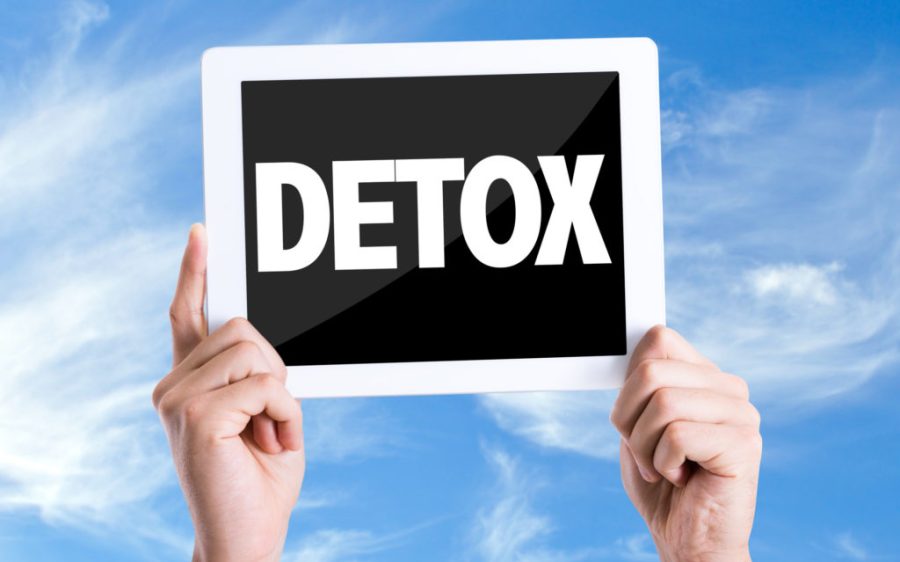
Over 20 million Americans struggle with a substance use disorder. Addiction can profoundly affect the quality of you and your loved ones' lives. Seeking professional help and treatment is often essential to your well-being.
The right drug detox can help you safely withdraw from drugs and alcohol. It can also help you feel structured and supported during a scary time. For many, it's the first step towards a lasting, sustained recovery.
Chances are, you have plenty of questions, fears, and maybe even doubts about what to expect.
We're here to break it down to you. Let's get into what you need to know.
Drug detox refers to a set of managed interventions aimed to help ease difficult withdrawal symptoms.
When you become addicted to drugs or alcohol, you experience an increased tolerance to the substance's effects. Furthermore, when you suddenly stop taking the substance, your body enters a state of withdrawal.
The state of withdrawal depends on several variables including:
Because each person has different withdrawal symptoms, there is no "specific" length of detox.
In your drug detox, you will typically have round-the-clock medical and psychiatric support. This will help ease uncomfortable psychological and physical symptoms.
There are detox facilities all across the country. Each detox runs differently, but all the overarching goal of helping you feel safe.
Some people prefer to go to a local detox. This may be best if you are a provider for your family or cannot take extensive time off work.
Others prefer to go out-of-state for drug detox treatment. This option can work well for people who need to be away from their current environment. It also works well for those who intend on entering a long-term treatment afterward.
Detox may be funded a variety of ways including:
When you speak to different admission counselors, be upfront with what you can (and cannot afford).
A good treatment center will happily answer your questions regarding finances.
At first, you'll probably fill out an initial evaluation and undergo a comprehensive medical exam.
This is to clear you for detox, assess your individual needs, and develop an appropriate treatment plan. You will typically be assigned a case manager and be introduced to the facility's staff.
From there, you may be prescribed certain withdrawal medications. For example, it is common for patients detoxing from alcohol to receive benzodiazepines, like Valium. Similarly, people detoxing from stimulants, like meth, may receive an SSRI to assist with accompanying depression symptoms.
Depending on your drug history, detox symptoms can vary. However, you may experience the following issues.
Alcohol
Symptoms may include:
Detox from alcohol varies depending on the individual, but it can last anywhere between 4-7 days.
Opioids (Heroin, Oxycontin, Percocet, Vicodin)
Symptoms may include:
Drug detox from opioids can be highly distressing and uncomfortable. After all, many people continue to use opioids to avoid withdrawal. With that in mind, opioid detox in it of itself is not life-threatening.
Detox timelines vary from 3-7 days. Timelines may be longer if the person receives tapering medications.
Stimulants (Cocaine, Methamphetamine)
Symptoms may include:
Unlike alcohol and opioids, stimulants do not necessarily present with "physical withdrawal symptoms." That means most people are cleared within 3 or so days to complete drug detox.
Please keep in mind that if you are a polysubstance drug user, you may experience a combination of different symptoms.
There isn't one specific way to plan for detox. Many patients make the decision very quickly and decide to admit into care within 24 hours.
This can be a good thing- medical treatment can offset dangerous, life-threatening risks such as overdosing and seizures. Furthermore, detox staff can monitor your physical and mental well-being.
In general, the best way to prepare for drug detox is to stay open to the process. You may feel uncomfortable or angry at first. You may even get bored or homesick.
These feelings are completely normal, and most patients experience them.
Keeping that in mind, it's important to do what you can to stay the course. Recovery from addiction is incredibly challenging, and there will absolutely be moments where it feels uncomfortable. Talking to staff or other patients will help you feel better during these tough times.
You want to make sure that you pack well for your drug detox. Typically, you'll want to pack at least a week's worth of clothing. If you intend on entering residential treatment after your detox, you'll want to pack more.
Research the weather before you pack. You don't want to pack a bunch of shorts if it's going to be freezing and vice versa.
You'll also want to pack your essential toiletries. Keep in mind that the detox staff will search your belongings. Anything containing alcohol will typically be kept from you.
Finally, bring your essential documents, such as your identification and insurance card and any prescriptions.
You may also want to bring any leisurely activities like coloring books, reading books, or art supplies. Feel free to pack any special photographs or tiny mementos.
Addiction is a life-threatening disease, but help and recovery are always available. If you're ready to start a new life today, contact us now.
Our representatives are available 24/7 to assist and support you.
Resources:
Content medically reviewed by Vicky Magobet, PMHNP-BC, on April 6th, 2018.